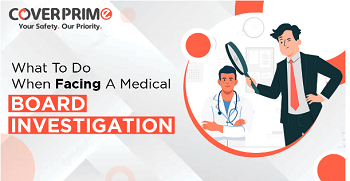How Failure to Take Proper Consent Can Lead to Negligence Claims

Consent is more than a formal signature or agreement, it’s the foundation of trust between doctors and their patients. In the world of medicines, a properly obtained consent form acts as a protective shield for healthcare providers. Consent forms ensuring that the patient is fully aware of the risks and benefits involved in any procedure. Informed consent isn’t just a legal requirement, it’s a very important part of medical ethics. However, when this crucial step is skipped or mishandled, it can lead to medical negligence claims, creating lasting consequences for both the patient and the doctor.
As per the data, India sees around 5.2 million medical negligence cases every year. This figure underscores how essential it is for healthcare professionals to ensure that patients are well-informed before any medical procedure. A lack of proper consent can lead to legal complications for doctor and under the law doctor can be held accountable for failing to inform patient of the potential risks. Consent isn’t just a piece of paper its about respecting a patient’s right to make informed decisions about own body and health.
What is Proper Informed Consent?
Informed consent is the right of every patient. Legally it ensures that patients receive all the necessary information before undergoing any medical treatment. The doctor must discuss the following key elements with the patient:
- The patient’s diagnosis
- The nature and risks of recommended treatment
- The risks of alternative treatment or procedure
- The consequences of opting for no treatment at all
A proper informed consent process involves a transparent dialogue two communication between the doctor and patient, ensuring the patient can weigh the pros and cons of each option. If this process is rushed or omitted it can lead a doctor the door to negligence claims.
When Is Informed Consent Required?
Certain medical procedures require formal written consent especially when the risk is high. As per Medlineplus, written consent is very important for:
- Most surgeries, weather minor or major
- Advanced procedures like liver biopsies or endoscopies
- High-risk treatments such as chemotherapy or opioid therapy
- Vaccinations and certain blood tests including genetic and HIV testing
In such cases failing to obtain informed consent leaves doctors vulnerable to legal repercussions, especially if the patient suffers harm during or after the procedure
Informed Consent in Emergencies
What happens in emergency situations when the patient is unconscious or there’s no time to discuss treatment risks? As per the law in these types of situations where healthcare providers are able to obtain informed consent. As long as the treatment provided was reasonable, necessary, and in the patient’s best interest doctors are protected from negligence claims. However, if there was to obtain consent and the doctor failed to do so they could still face legal challenges. It’s a delicate balance between saving lives and ensuring the patient’s autonomy is respected.
Types of Consent in Medical Profession
- Express consent: This can be oral or written, through written consent is preferred for its evidential value.
- Implied consent: Based on patient’s actions or conduct.
- Tacit consent: Consent that is understood without being explicitly stated.
- Surrogate consent: Consent given by a family members typically in situation where the patient is unable to provide it themselves
- Advance or proxy consent: Consent given in advance, often by an authorized person acting on the patient’s behalf.
Each type of consent carries its own legal weight, but informed consent given after all risks and side effects have been explained is the gold standard in protecting both patient rights and doctor’s responsibilities.
Real-Life Case Study: The Cost of Neglecting Proper Consent
According to the National Library of Medicine which highlights a notable case in india where a doctor performed a surgery without obtaining proper consent from the patient. The patient is an adult, consented to a diagnostic laparoscopy but did not consent to a total hysterectomy, which was performed during the procedure. The court ruled that the doctor’s actions amounted to an unauthorized invasion of the patient’s body, and the hospitals was directed to compensate the patient ₹25,000 for the unauthorized surgery. This case shows the importance of obtaining specific and explicit consent before proceeding with any medical intervention. A failure to do so can lead not only to financial penalties but also irreversible damage to a doctor’s reputation.
Protecting Yourself with Professional Indemnity Insurance
Given the complexities of medical practice, doctors can’t afford to take chances. One best and important way to protect themselves is by investing in professional indemnity insurance. For example, CoverPrime offers policies that provide healthcare professionals with consent forms tailored to their needs. In the event of a negligence claim, having a proper consent form can be the key to a critical legal defense.
But CoverPrime’s services go beyond just consent forms. Their policies include protection against cyber fraud, defamation, and even workplace disputes. With up to ₹50 lakh in compensation for cyber-related incidents, doctors can ensure that both their personal and professional lives are safeguarded.
Conclusion:
In today’s litigious world, healthcare professionals must prioritize the consent process. It’s not just a formality it’s a vital step that protects both the patient’s rights and the doctor’s practice. When done properly, informed consent fosters trust, clarity, and mutual understanding. When neglected, it opens the door to legal battles and costly negligence claims. Doctors are busy, but they can’t afford to cut corners when it comes to obtaining proper consent. Partnering with professional indemnity insurance broker like CoverPrime can help ease the burden, allowing healthcare professionals to focus on what they do best caring for their patients.














